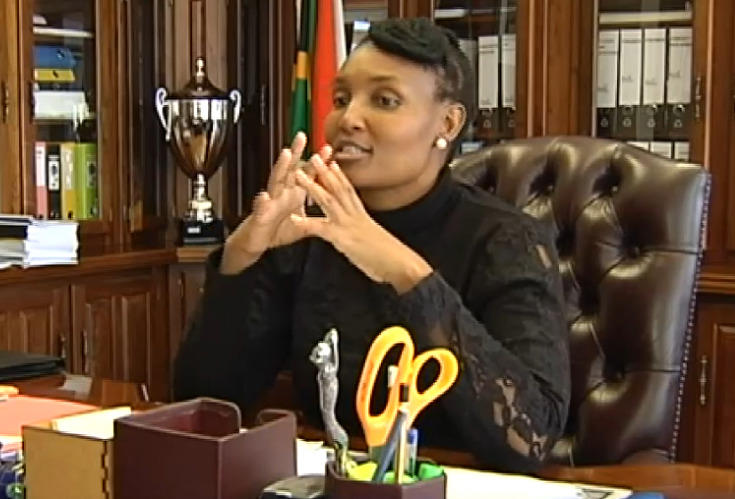Cyril Ramaphosa’s failure to act decisively against Justice Minister Thembi Simelane over allegations of corruption marks yet another missed opportunity to demonstrate genuine leadership in the fight against ANC corruption. Despite multiple opportunities to hold her accountable, Ramaphosa’s reluctance to take swift action has led many to question his commitment to rooting out the pervasive culture of corruption within the party. His inaction is a clear reflection of the ANC’s inability to enforce ethical standards at its highest echelons, undermining public trust in the administration.
Simelane’s troubles began earlier this year when news surfaced about a questionable loan she took from an individual linked to the VBS Mutual Bank looting scandal. Instead of taking immediate action, Ramaphosa hesitated, and Simelane has since attempted to defend her actions, claiming the loan was legitimate. However, her failure to provide any credible documentation to substantiate her claims only deepened suspicions. Her continued tenure in such a sensitive position, with corruption allegations hanging over her head, represents a glaring failure of leadership by the president.
The situation worsened with the findings of a joint investigation by News24 and Daily Maverick, which uncovered Simelane’s extravagant spending habits during her time as mayor of Polokwane. Evidence revealed that her lifestyle far exceeded what could be supported by her salary, including high-end handbags, expensive shoes, and a lavish R170,000 family vacation to a Disney resort in Florida. Perhaps more concerning was the discovery of a property in Pretoria, purchased in cash from an account controlled by a company linked to Simelane. This raises serious questions about the source of her wealth and whether she is living beyond her means—or, more likely, enriching herself through illicit means.
Despite the mounting evidence, Simelane has failed to provide any legitimate explanation for her opulent lifestyle. Her lack of transparency, coupled with the absence of a visible means of income to justify her spending, suggests that she may be benefiting from the same questionable practices that have tainted so many other ANC figures. This revelation calls into question the ethical standards of those within the ruling party, where corruption often seems to be tolerated, if not rewarded. Simelane’s case is merely the latest in a long line of ANC officials whose misconduct appears to go unpunished.
Instead of taking immediate steps to address the growing scandal, Ramaphosa made the questionable decision to move Simelane to a different portfolio—minister of human settlements, where vast sums of money are earmarked for housing projects. While some might argue that this move was meant to shield Simelane from the fallout of the VBS scandal, it raises serious concerns about the ANC’s priorities. Was this simply a calculated effort to keep Simelane out of trouble, or an indication that those at the top are allowed to get away with anything, as long as they are aligned with the party’s interests?
The Simelane affair serves as yet another example of how corruption in South Africa is largely a game of power and privilege, with little regard for the consequences faced by ordinary citizens. While vulnerable communities continue to suffer from the fallout of financial scandals like the VBS heist—where pensioners lost their savings—the ANC elites remain largely untouched. This systemic failure of accountability ensures that those in power are rarely held to account, as they continue to live lavishly off the very resources meant to serve the public good. It’s a tragic reminder of how deeply corruption runs within the ruling party, and how far the ANC is willing to go to protect its own.
